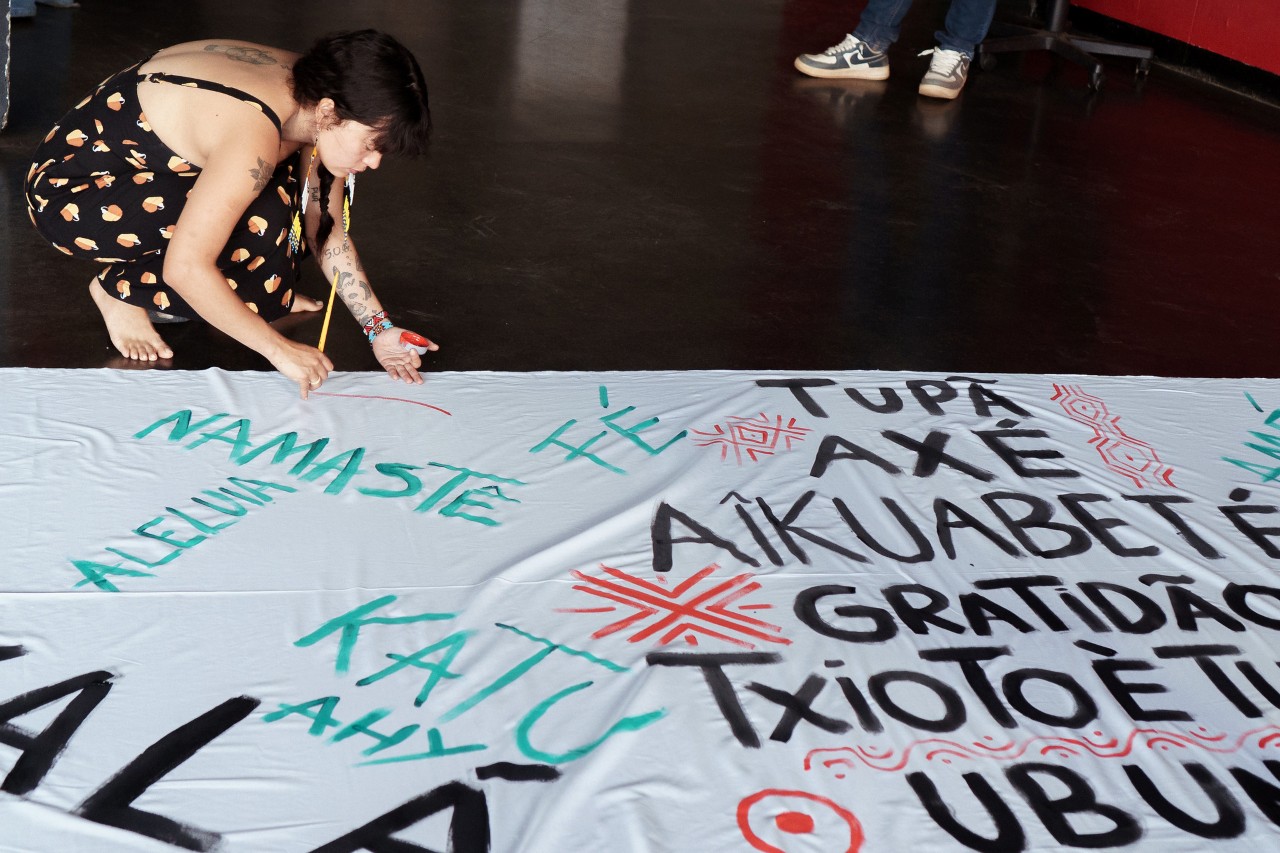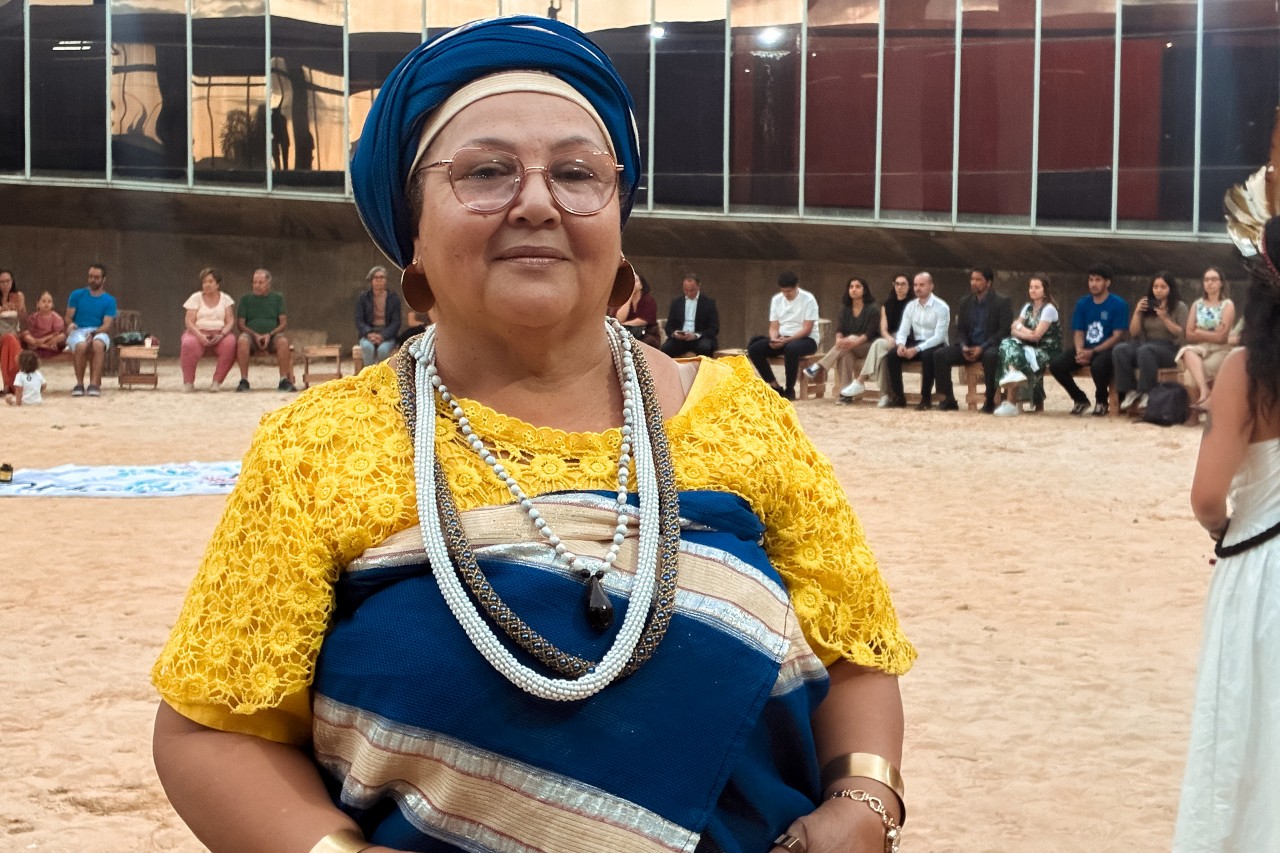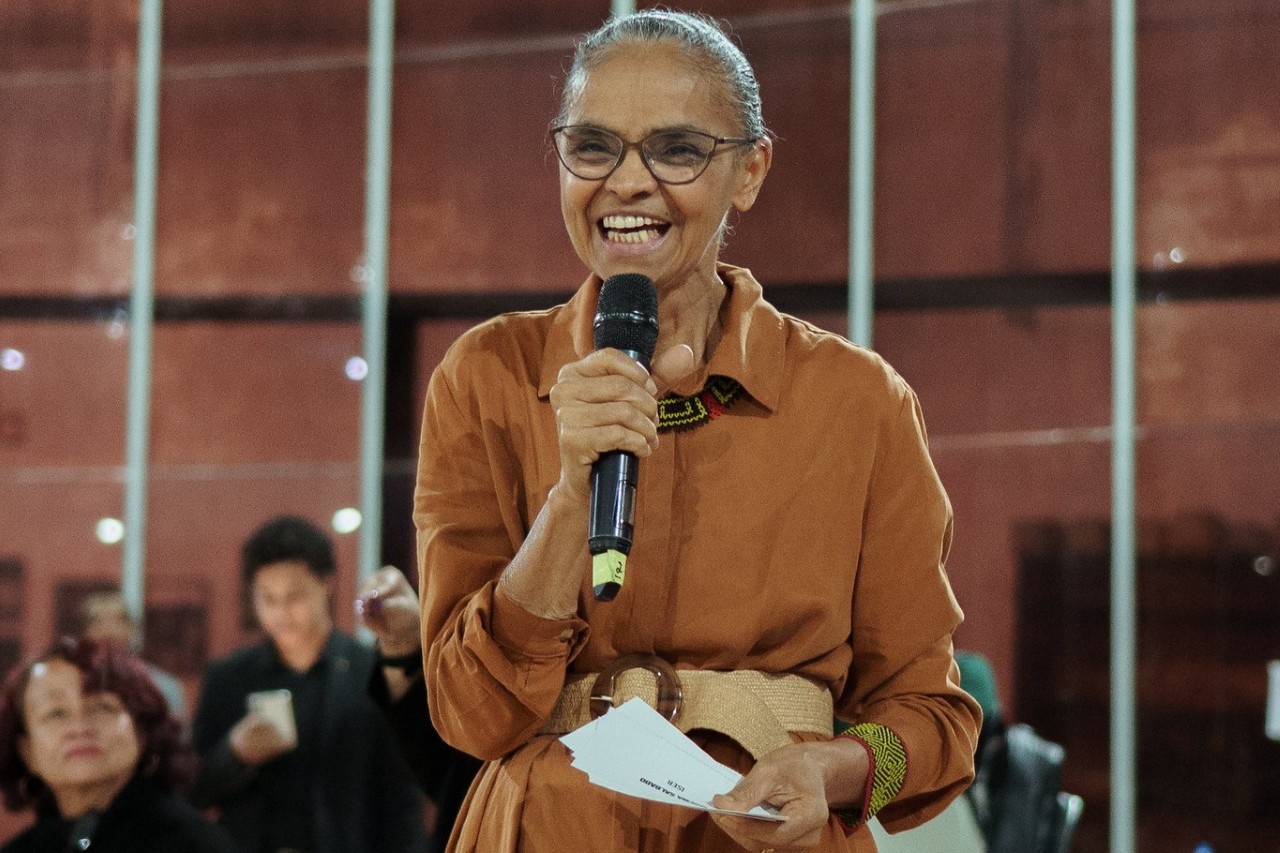Religious leaders gathered to discuss their relationship with the environment and climate change
In a circle, representatives of Judaism, Umbanda, Islam, and other faiths exchanged experiences about their connection to the Earth. The meeting aligned with the Global Ethical Stocktake (GES) of COP30, which aims to include cultural diversity in the mobilization against climate change

By Mayara Souto /COP30
On Wednesday, August 13, during the preparations for COP30, the theme of the intercultural gathering, "Faith in Climate," held at the Memorial of Indigenous Peoples, was the relationship between faith and climate. "Axé." "Amen." "Namaste." "Ubuntu." "Faith." These were some of the words written on a large banner stretched across a circle of people of different faiths. They all shared a common conviction—that it is necessary to join forces to confront the climate crisis.
With pipe and rattle, chanting Indigenous songs, Mr. Mirim Ju Yam, from the Guarani people, opened the circle by recalling the ancestral and sacred relationship of Indigenous peoples with the land. “In our culture lies the seed of preservation, of life in harmony with the Earth, and the understanding that nature is not something out there. Nature is not an object. Nature is everything that exists. We are part of that nature,” he emphasized.
The sound of drums and the smoke of sacred herbs also marked the presence of African-based religions.
“Without forests, without woods, there is no religion,” summarized Mother Cícera of Oshun, who highlighted the link between Umbanda and the elements of nature.

“Fresh water belongs to Oshun, rainwater to Iansã, lagoon water to Nanã, which represents decomposition — it falls into the lagoon, the lagoon decomposes, becomes fossil, sinks to the depths, and starts anew. We have the God of the forests, Oshosi. All our gods are from nature,” explained the religious leader, referring to the orishas of Candomblé, an afro-descendant religion.
Dependence on nature is also present in the Qur’an, the sacred Muslim book, according to Mr. Omar Lakis, representative of Islam and a youth leader at the Institute for Religious Studies (Instituto de Estudos da Religião/ISER). He said that the Prophet Muhammad taught his followers environmental preservation.
“They would save water, even when it was abundant, and conserve resources. There’s a word for this, ruma, which means the habit of using only what is necessary. It’s about using water as needed, food as needed, and planting a tree,” said the religious leader, noting that this is a “lifestyle that coincides” with climate change mitigation.
The religious leaders listened attentively, agreeing and sharing experiences. The certainty, regardless of religion, is the dependence on nature to exist and, thus, to live out the purpose of their beliefs.
“God created the Earth, and we are here to care for it. And we see this in all religions; some even more directly linked to the Earth. I believe that when we unite, we cease to be minorities and become a very positive majority, fighting for our common ground, for our home, for the Earth, which is our greatest asset,” emphasized Ms. Ida Katz Carraly, from the Jewish community.
The Jewish leader also recalled an ancient practice recommended in the Torah, the sacred book of Judaism. “There is, for example, a rule that says that every seven years the land must rest. It was a sabbatical year for the Earth. And today we see this applied in crop rotation practices, that you cannot plant the same thing on the same land every year,” she explained.
“Communion”
The Faith in Climate 2025 event was held in alignment with the Global Ethical Stocktake (GES), proposed by the COP30 Presidency, to carry out an ethical and planetary dialogue on the climate crisis, bringing together social, cultural, spiritual, business, scientific, and political leaders.
For this reason, the COP30 CEO, Ana Toni, was present at the event and commented on how the interfaith dialogue strengthens the idea of collective action.
“We have called this great collective effort to fight climate change a ‘mutirão’ (collective efforts). But after this event, I would say that COP30 is not only a great ‘mutirão’ but also a great communion,” she highlighted.

The Brazilian Minister of the Environment, Marina Silva, also emphasized joint work, including that of religious leaders, to drive change. “It is a ‘mutirão’ to implement. We can’t just keep talking — it has already been 33 years of discussions. We have achieved many things, advanced in many areas, but now we are already living in a climate emergency,” she stressed.
On this occasion, the Minister also reflected on her relationship with religion. “You know that I have the Christian faith, and I respect all religious expressions and those with no religion. Because we have a common sacred basis, which is the fact of being human. And on this common basis, we can talk, we can challenge each other, even if it is for each one to deepen their path. So it is on this common basis — of being all human, part of this community of life, including not only our life but other forms of life — that I stand,” she reflected.
As a GES leader, Ms. Marina Silva also emphasized the importance of cultural and religious diversity in calling for ethical climate action. “I want each of you to leave here, in your different ways of believing, with goals for this COP. There is so much we need to negotiate and solve, right? And I hope the Ethical Stocktake can bring all the uncomfortable truths that, at times, governments, companies, and the financial sector don’t want to hear,” she concluded.
